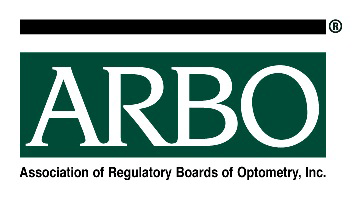Continuing education (CE) has traditionally been the benchmark for measuring continued competence for optometrists. Because currently, CE is the only method, licensing boards have to assure the competence of their licensees and registrants; it is critical that the CE accepted for license renewal meets the highest standards and that the accreditation program is defensible. COPE (Council on Optometric Practitioner Education) Accreditation assures licensing boards that the CE is independent, free from commercial bias, based on valid content, and effective in improving the quality of care delivered to patients.
COPE was created by ARBO to accredit continuing education on behalf of optometric licensing boards. COPE’s Objectives are to:
• Accredit optometric continuing education providers and activities for the public welfare;
• Monitor programs to help assure the quality and independence of continuing education in appropriate settings with adequate administration;
• Reduce duplication of effort by member boards;
• Create a uniform method of recording continuing education activities;
• Be the reference source for member boards for information about continuing education providers and activities utilized by licensed optometrists to fulfill their continuing education requirements.
Why COPE?
COPE administrators and providers must meet rigorous standards for educational quality and independence. CE has evolved from merely sharing medical knowledge to developing professional competencies to improve healthcare outcomes. COPE has also changed by adding Standards for Commercial Support (SCS)to assure CE is free from the control of commercial interests. Additionally, the new COPE Accreditation Criteria require CE providers to incorporate the educational needs of their learners in their CE planning process and to analyze changes in the learners based on goals of improving skills, strategies, and patient outcomes. COPE is now the gold standard in optometric CE – there is no higher standard.
Can Licensing Boards Accredit Their Own CE?
If a licensing board has accreditation standards, policies, and procedures in place for accrediting CE, then they can certainly do it themselves. However, are those standards as stringent as COPE’s?
Do they require independence from commercial interests?
Are the course materials reviewed to make sure they comply with the standards?
Are there requirements for educational planning and outcomes assessment?
Do they require the CE to change the skill, strategy, or patient outcomes of the optometrist?
How is the education reviewed to make sure it complies with the requirements?
How does the board handle complaints about CE that isn’t in compliance?
Are there better things that your board could be doing instead of approving CE applications?
You may not have answers to these questions. The good news is that COPE is a tool available for you to assure that the CE you accept for license renewal is of the highest quality and meets the same standards as other healthcare professions.
Why Is COPE Under ARBO?
ARBO is not a CE provider. Therefore, ARBO does not have any conflicts of interest related commercial entities. The COPE SCS provide clear guidelines to identify and manage the conflicts that are present with CE providers when they accept commercial support. The COPE program is an independent system of accreditation based on established standards and aligned with other healthcare professions. State and provincial licensing boards created COPE and those boards, being members of ARBO, can continually review the program to make sure it meets their needs.
Would you want an external body to make accreditation decisions without allowing for your input? Do you consider continuing education requirements for license renewal simply fulfilling a number of hours? With COPE, you have a voice in the accreditation process. CE accreditation under any other organization would not give you the same input into the accreditation requirements ARBO provides. State and provincial regulatory boards need a CE accreditation program that is defensible in meeting their public protection mandate. COPE, the CE accreditation program established by you for you, will stand up to any legislative or medical review and provides the most defensible program for optometric CE.
